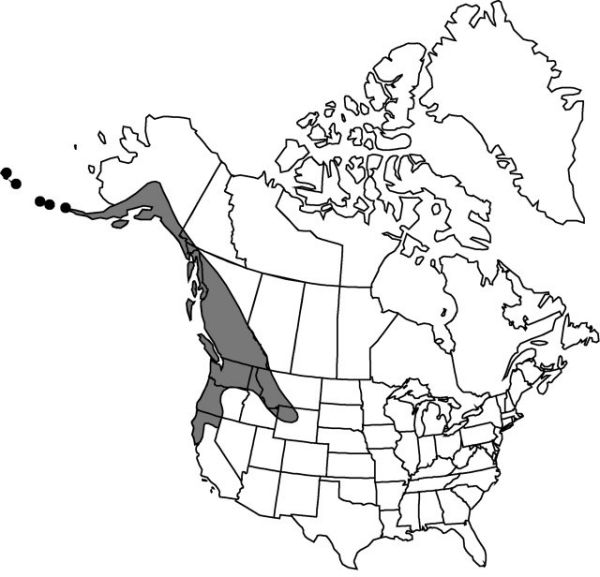Difference between revisions of "Platanthera stricta"
Gen. Sp. Orchid. Pl., 288. 1835.
FNA>Volume Importer |
FNA>Volume Importer |
(No difference)
| |
Revision as of 21:39, 16 December 2019
Plants 18–100 cm. Leaves few–several, abruptly diverging or sometimes ascending, scattered along stem; blade oblong to ovate or rarely linear-lanceolate, 3–32 × (0.6–)1–4.5 cm. Spikes very lax to dense. Flowers resupinate, not showy, green to yellowish green; lateral sepals spreading to reflexed; petals ovate- to lance-falcate, margins entire; lip descending to somewhat reflexed or projecting, linear to lanceolate, without basal thickening, 3–9 × less than 1–3 mm; spur strongly clavate, capitate-inflated, or scrotiform, 2–6 mm, apex obtuse; rostellum lobes approximately parallel to convergent, directed downward, very small, rounded, obscure; pollinaria straight; pollinia remaining enclosed in anther sacs; viscidia orbiculate; ovary rather slender to stout, mostly 5–10 mm. 2n = 42.
Phenology: Flowering Jun–Aug.
Habitat: Wet meadows, tundra, marshes, fens, stream banks, shores, ditches, seeping slopes, roadsides
Elevation: 0–2300 m
Distribution

Alta., B.C., Yukon, Alaska, Calif., Idaho, Mont., Oreg., Wash., Wyo.
Discussion
Flowers of Platanthera stricta are evidently mostly scentless or only faintly spicy.
The plants here treated as Platanthera stricta have in common more or less saccate spurs, orbiculate viscidia, and leaves that abruptly diverge from the stem, often at angles approaching 90º (this feature is sometimes obscured in sheltered, deeply shaded habitats). The plants described as P. gracilis Lindley are florally typical of the slender-spurred extreme of P. stricta; they differ only in peculiarly reduced, slenderly oblong but nonetheless abruptly wide-spreading leaves. The plants figured by C. A. Luer (1975) as P. hyperborea var. gracilis (Lindley) Luer are not referable to P. stricta but rather are apparently hybrids of P. stricta and P. dilatata. Critical study of the description of Habenaria borealis var. viridiflora Chamisso and an evident isotype show this plant to be referable to P. stricta, although the name has been applied to P. huronensis in the Northwest and to P. convallariifolia in Japan. See also the discussion under 9. P. convallariifolia.
Selected References
None.